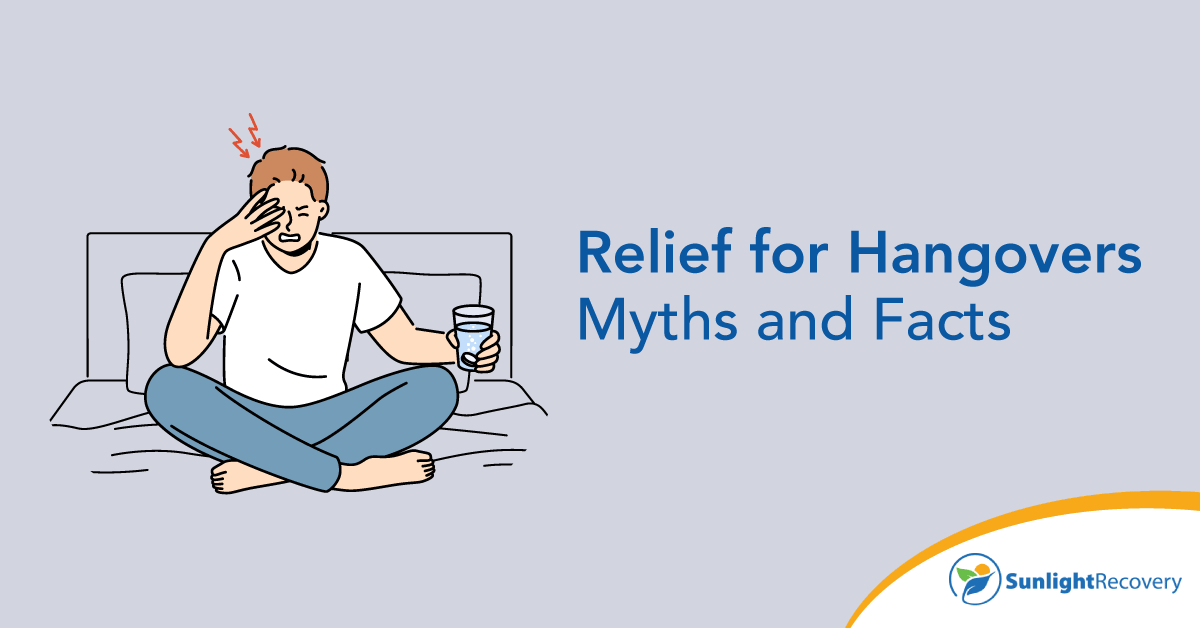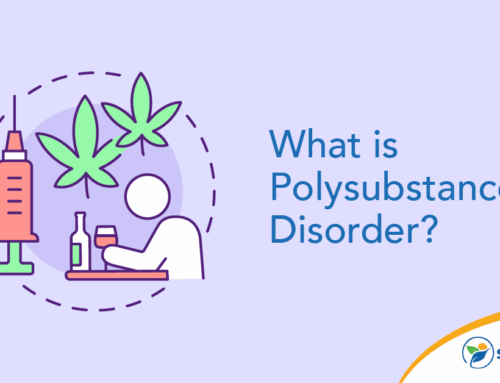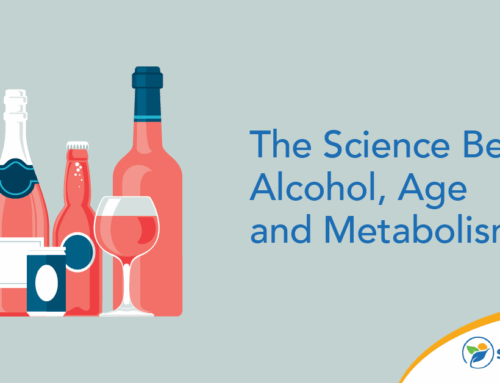If you’ve ever had a night out with friends drinking to excess, you’ve probably experienced the dreaded hangover. Hangovers remind us of the dangers of overindulging in any type of alcoholic drink. Approximately 20% to 25% of drinkers are said to be hangover-resistant, and the other 75% to 80% often struggle with a miserable morning after. While you can do a few things to ease the pain, exploring the following hangover facts helps you know what works and what doesn’t.
Common Hangover Symptoms
The term “hangover” refers to any unpleasant physiological and psychological symptoms you have after you’ve had one too many alcoholic beverages. It’s related to the toxins released by the liver as it’s breaking down ethanol. Hangovers can present themselves in a variety of different ways, but some of the most common hangover symptoms include:
- Headaches. Alcohol acts as a natural diuretic, which can cause chemical imbalances and dehydration. As a result, the blood vessels widen, attempting to increase blood flow and transport oxygen to areas of the body that need it most in a process called vasodilation. As the blood vessels widen, the sensory receptors in the vessel walls stretch, which the body feels as pain. Vasodilation is one of the leading causes of migraine.
- Nausea and vomiting. Acetaldehyde is the first byproduct when the body processes alcohol. This acid can cause inflammation in the stomach lining and induce nausea and vomiting.
- Fatigue. Alcohol increases the production of adenosine in the body, one of the building blocks of RNA. In excessive amounts, adenosine can help you fall asleep quickly; however, it can also disrupt REM sleep, making you feel less rested the following morning.
- Dizziness. Dizziness is often one of the most common symptoms of a hangover and drinking too much. Alcohol is a toxin that suppresses the cerebellum and the vestibular system, which makes you seem clumsy and feel off balance.
- Sensitivity to light and sound. Sensitivity to light and sound is another vestibular response to drinking alcohol. Neurotransmitters in the brain become more sensitive, which may make light and sounds seem amplified.
- Muscle aches. Alcohol use increases inflammation throughout the entire body, which may make you feel sore and achy.
- Dehydration. Vasopressin is a hormone released by the brain that tells the kidneys to retain water when you aren’t getting enough fluids. Alcohol suppresses this hormone, which causes frequent urination and excessive loss of fluids. As a result, you’re likely to feel extremely thirsty the following morning.
Popular Myths About Hangover Cures
A wide range of hangover cures exist that promise quick relief from hangover symptoms, and not all of them are effective. Following are some popular myths.
- Hair of the dog. While it may be tempting to drink more alcohol to provide relief from your symptoms, doing this only increases the strain on your system and prolongs the effects of your binge. Increasing your alcohol intake causes further stomach irritation and can even make your headache worse.
- Caffeine. Caffeine narrows your blood vessels, which provides temporary relief for a headache. However, like alcohol, caffeine is a natural diuretic and can make you even more dehydrated.
- Vitamins and supplements. Vitamins B6 and B12 help with energy production, relieve stress and regulate serotonin levels in the body, which has been proven helpful when treating migraines. But is B12 good for hangovers? While B vitamins support overall health, no evidence indicates it reduces hangover symptoms. In fact, in high doses, B6 is toxic.
- Enjoy a heavy meal. Eating a big breakfast can help stabilize your blood sugar, but it doesn’t counteract the effects of alcohol. If you’re feeling nauseous and have a heartburn hangover due to stomach irritation, eating a greasy meal may make you sicker.
- Exercise. Under normal conditions, exercise releases endorphins, which can reduce stress and anxiety and make you feel better. If you’re still feeling the effects of a night on the town, however, exercise can increase your risk of injury due to dizziness and make you even more dehydrated as you’re sweating.
Scientifically Proven Hangover Facts and Remedies
Certain remedies have been scientifically proven to reduce the effects of excessive alcohol consumption. These hangover facts include:
- Drinking water. One of the best home hangover cures is to rehydrate. Drinking water and electrolyte-rich beverages can help you combat dehydration, reducing many of the effects alcohol has on the body.
- Getting enough rest. Getting a good night’s rest gives the body time to metabolize any remaining alcohol in your system and recover.
- Over-the-counter pain medications. Acetaminophen and nonsteroidal anti-inflammatory medications, such as ibuprofen, can reduce inflammation and help with headaches.
- Fruit juice. Some of the best fruits for hangover include bananas, kiwi and watermelon, which can replace the lost electrolytes and hydrate the body.
Preventing Hangovers: Tips and Tricks
The best way to treat a hangover is to prevent it from happening in the first place. If you’re planning to drink, you can do a few things to help reduce your chances of getting a hangover.
- Pace yourself. Sip your alcohol slowly, allowing your body time to process the alcohol.
- Limit yourself. Know your limits and stick to them.
- Stay hydrated. Prevent dehydration from drinking by alternating between water and alcohol.
- Choose your drinks wisely. Certain alcohols, such as whiskey and red wine, tend to cause more hangovers than clear liquors, such as vodka and gin, because they contain fewer congeners — substances that enhance the beverage’s smell and taste.
Long-Term Health Effects of Frequent Hangovers
Occasional hangovers are mainly an inconvenience, but frequent alcohol abuse can cause a lot of damage and result in many health problems, such as respiratory issues, an increased risk of cancer and stroke, and chronic pancreatitis. Other problems may include:
- Liver damage. Excessive drinking can cause liver issues and contribute to fatty liver and cirrhosis.
- Heartburn hangover. Regular drinking can increase the level of acid in your stomach, which causes chronic acid reflux and heartburn.
- Memory problems. Studies have shown persistent alcohol use may have an effect on brain function and may increase the risk of Alzheimer’s.
- Mental health issues. Alcohol abuse has been linked to high rates of depression and anxiety.
Getting Help for Alcohol Addiction
If you or someone you love struggles with alcohol addiction, get help now by contacting Sunlight Recovery. Our counselors can provide information on the available treatment options and get you started on a path to recovery today.







